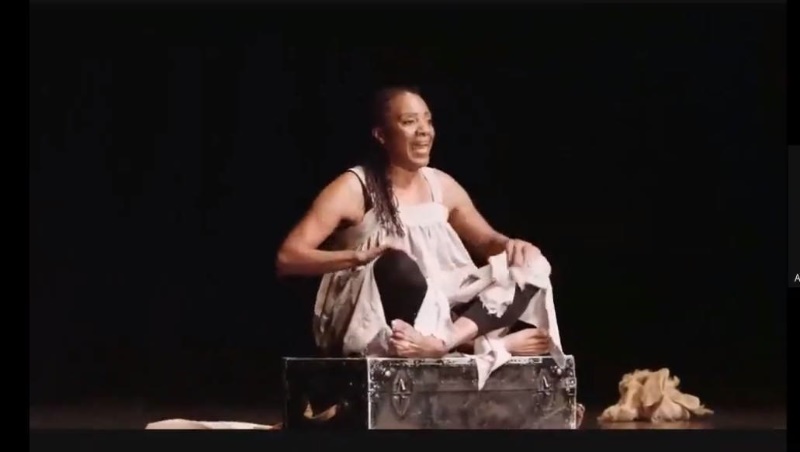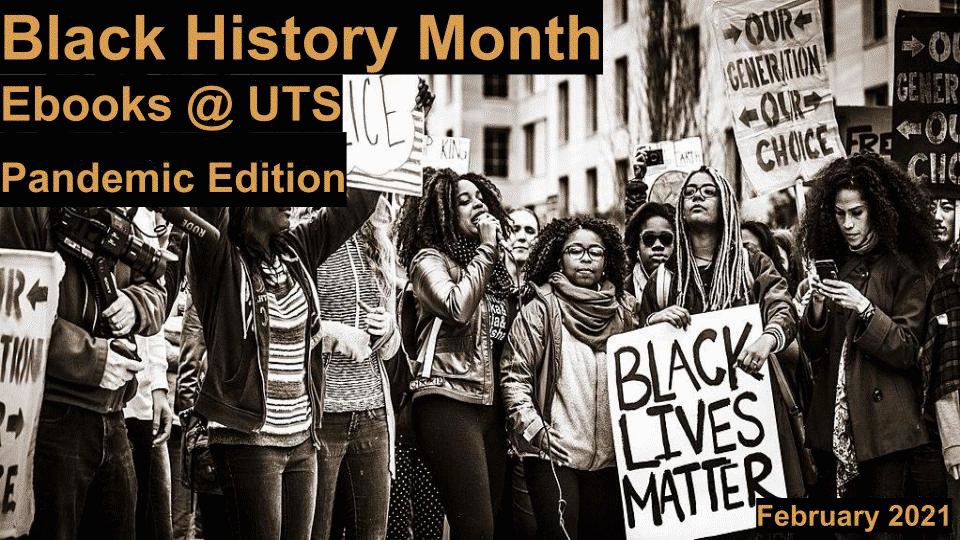371 Bloor Street West
Toronto, ON M5S 2R7 get directions
Toronto, ON M5S 2R7 get directions


This February, UTS honoured Black History Month. From the Kingdom of Kush to hosting renowned civil rights activist Dr. Rosemari Mealy, Black History Month came alive at our school, as we studied and celebrated the contributions of Black individuals and communities, in the classroom and our community.
“Education leads to action, and action can lead to a better society in which the colour of someone’s skin won’t impact their success in life,” says F2 (Grade 8) student Anousha in a Flipgrid video she made for Chris Walasek's History class. The assignment was to describe why it is important to study Black History in Canada, and why failing to do so perpetuates a single story.
Watch videos by Anousha and Dexter.
Last week, UTS was honoured to welcome renowned author, civil rights leader and educator Dr. Rosemari Mealy for a virtual session over lunch. "We've come a long ways but we have a long way to go... We can't go through life glossing over having that conversation around race," she told panel guests. She shared strategies on how to enact change, discussed the importance of intergenerational connections, and how vital it is to include more voices when shaping policies. The discussion also looked at how institutions in our society perpetuate racism. The event was organized by the UTS Black Equity Committee and moderated by S6 (Grade 12) Daeja, M4 (Grade 10) Leyat and F2 (Grade 8) Zacharie, under the staff leadership of Visual Arts teacher Robin Michel and also hosted by Forough Shafiei, Development and Community Relations Officer at UTS.

Another special guest came virtually to our school this week. Actor, playwright and dancer Leslie McCurdy performed her one-woman play, The Spirit of Harriet Tubman, about four Black women who affected significant social changes in Canadian History, for all F1 to M3 students (Grade 7 to 9).
The UTS Black Equity Committee Executive S6 (Grade 12) Daeja and M4 (Grade 10) Leyat took over UTS Instagram Stories on a Monday, highlighting Black historical figures such as Claudette Colvin, who refused to give up her seat on a Montgomery bus nine months before Rosa Parks, recommending films such as Ma Rainey’s Black Bottom and much more. Watch their stories.
At UTS, students are empowered to become leaders, and share what they learn with other students. Earlier in February, F1 to M3 (Grade 7 to 9) students took part in anti-racism workshops led by UTS Equity Peer Educators.

For his History classes, teacher Dr. Paul Harkison modified his curriculum to include the African Kingdom of Kush (modern day northern Sudan and southern Egypt), which predates the Roman conquest of the Mediterranean by several centuries and he says is "often ignored or completely forgotten in the study of ancient world history." His students examined recent archaeological excavations in an effort to reveal the wonders of an African civilization that he says is "home to some of humankind's earliest metropolises, replete with governance, religion, and art."
His F1 (Grade 7) History class also studied the historic trial of Angélique, a Black slave accused of setting an extensive fire in Montreal in the 18th century. Does the evidence presented by trial witnesses provide enough evidence to convict someone? This is what students in Dr. Harkison's had to decide as they revisited evidence in the trial.
Notes from the Field: Doing Time in Education – English class
Julie Stoyka’s M4 (Grade 10) English class studied Anna Deveare Smith’s one-person play, Notes from the Field: Doing Time in Education, the end result of more than 200 interviews with students, parents, inmates and politicians about the “school-to-prison pipeline” in the United States. Julie says: “In the play, Deavere Smith presents a selection of those verbatim interviews in order to ‘bear witness’ to the racial biases inherent in the American education system (but by no means a strictly American issue). Deavere Smith’s play becomes a rich historical document. Our M4 English students get a broader perspective on Black history, and see how real people can affect change by sharing their stories. I love that we can have and continue that conversation in class.”
In Kris Ewing's Health and Physical Education course, students looked at how social inclusion is a key determinant of mental wellness, and the many ways health influences and inequities intersect. The class also worked on a Padlet celebrating Black authors and their knowledge-sharing on health and wellness.
This month, as History and Philosophy students enter Vince Dannetta’s classroom, be it in person or online, they were greeted with music by Black musicians, as a way to broaden their cultural understanding. Vince always starts his classes with music. "I teach about a lot of heavy issues in my class,” he says, “and I wanted to give my students an indication of what an impact Black communities have had on the world. For me, music was the logical choice because it's been a big part of my life."
After learning about the causes of the Civil War, Vince’s American History class explored the story of the "All-Black" 54th Massachusetts Regiment, made of former slaves and free men, for a different narrative of that war.
The Learning Innovation Drop-Ins are monthly events that encourage staff to check-in with each other and share online teaching, working and learning strategies. The Drop-Ins are hosted by Dr. Cresencia Fong, Head of Teacher Learning, Innovation and Research, and the Learning Innovation Team of Isabella Liu, EdTech Integration Program Coordinator (also a Chemistry teacher), and Andrew Masse, Systems and Application Specialist.
“At UTS, we do our best to take care of each other and learn our way forward,” says Dr. Fong.
As a community, Black History Month gave us an opportunity to learn about Black history and acknowledge the rich, impactful contributions of Black individuals and communities to our society.
If you are interested in learning more about Black history, here are a few resources for you from Nasreen Khan, UTS Equity and Inclusion Program Director.
-Take a look at the Teaching Tolerance Parent Guide to Responding to Prejudice.
-Find inspiration with some Toronto’s Black musicians, visual and theatre artists.
-Watch Desmond Cole’s The Skin We’re In.
-Participate in and share with your network Ontario Black History Society’s Speaker Series.
-Read a book from University of Toronto’s Anti-Black Racism reading list.
-Celebrate by attending an event from this list of Black History Month Events
As a community, let’s consider how to acknowledge the rich, impactful contributions
of Black individuals and communities to our society, bear responsibility for
educating yourself and others in Black history, take on understanding
structural racism, and undertake the work to centre Black voices, all year.
Nasreen Khan, UTS Equity and Inclusion Program Director
Susie Choi has prepared an incredible Black History Month reading list.

Lawrence Hill's short play, Sensitivity, is featured in Season 1 of 21 Black Futures, presented by Obsidian Theatre and CBC Arts. Sensitivity, along with 20 other short plays, can be streamed on CBC Gem.
